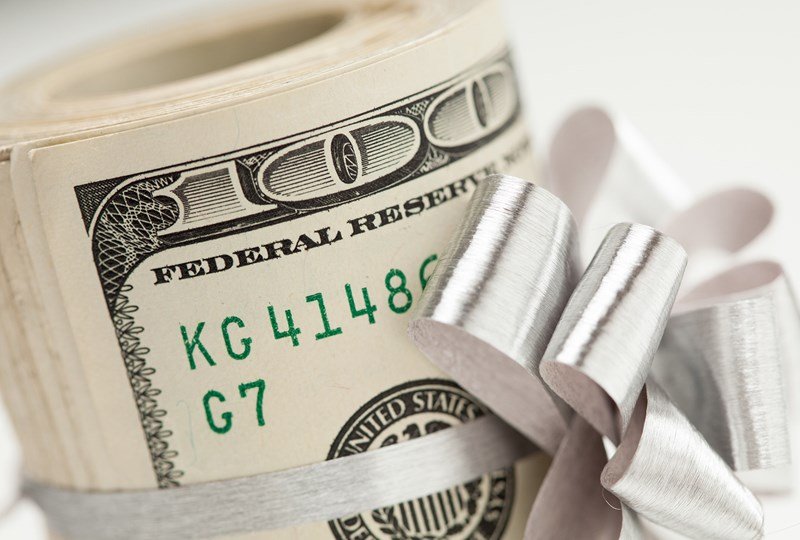How Much Money Can Be Gifted for a Down Payment?

When buying a home, saving for a down payment can be one of the biggest challenges. However, many people have the option to receive a gift from family or friends to help cover the down payment costs. If you’re considering asking someone to gift you money for a home purchase, it’s important to understand the rules, limits, and tax implications associated with gifted money. This guide will walk you through how much money can be gifted for a down payment and what to expect during the process.
What is a Down Payment?
A down payment is the amount of money you pay upfront when purchasing a home. Typically, this is a percentage of the home’s purchase price, and the rest is financed through a mortgage. A larger down payment can reduce your monthly mortgage payments and help you avoid private mortgage insurance (PMI).
Can a Down Payment Be Gifted?
Yes, down payments can be gifted, and many people receive help from their family or friends to cover part or all of the down payment. Lenders often allow gifts as a source of down payment funding, but they have specific requirements to ensure the money is not a loan in disguise.
Rules for Gifting Money for a Down Payment
There are several rules that apply when you receive a gift for a down payment. These rules ensure that the money is truly a gift, not a loan, and that everything is documented correctly. Below are the main rules to consider:
1. Gift Letter Requirement
When you receive a gift for your down payment, the person giving you the money (the donor) must provide a gift letter. This letter typically includes the following:
- A statement that the money is a gift and not a loan.
- The amount of money being gifted.
- The donor’s relationship to you (e.g., parent, grandparent, friend).
- A statement that there is no expectation of repayment.
This letter helps confirm that the gift is not a loan, which is crucial for the lender’s approval process.
2. Who Can Gift the Money?
The donor can be anyone, but lenders often prefer the money to come from close family members, such as:
- Parents
- Grandparents
- Siblings
- Children
In some cases, lenders may allow gifts from extended family members, friends, or even employers, but it’s important to check with your lender beforehand to confirm the rules.
3. Documentation and Proof
Lenders will also require documentation to prove that the gifted money was indeed given to you, not borrowed. This usually includes:
- A copy of the donor’s bank statement showing that the funds were available.
- A copy of the bank statement showing the transfer of money to your account.
These documents help the lender ensure that the gift is legitimate and not an undisclosed loan.
4. Gift Limits
In the United States, the IRS (Internal Revenue Service) has guidelines regarding how much money can be gifted without triggering a gift tax. For 2024, the gift tax exemption allows an individual to gift up to $17,000 per year to a person without incurring any tax liabilities. This amount is the annual exclusion limit. If the gift exceeds this amount, the donor may need to file a gift tax return, and it could count against their lifetime gift exemption (currently $12.92 million).
However, if the gift is below $17,000, it is not taxable, and the donor does not need to report it to the IRS. It’s important to note that the gift tax applies to the donor, not the recipient.
5. Large Gifts Over $17,000
If a gift exceeds $17,000, it may be subject to the gift tax. In this case, the donor would need to file a gift tax return (Form 709). The donor might not have to pay any taxes immediately because the gift can count against their lifetime exemption, but it’s still important to be aware of the requirements.
6. Down Payment Gift Limits for Mortgages
While the IRS sets limits on how much can be gifted without tax consequences, mortgage lenders may also have their own guidelines about the amount of gift money you can use for a down payment. Some lenders have specific rules on how much of your down payment can be funded through gifts, particularly for government-backed loans (like FHA loans).
For instance, some lenders may allow 100% of the down payment to be gifted, while others may only allow a portion of it to come from gifts. It’s important to confirm with your lender how much gift money they are willing to accept.
7. FHA and Conventional Loans: Different Rules
- FHA Loans: The Federal Housing Administration (FHA) allows borrowers to use gift funds for the entire down payment, as long as the gift is from an acceptable source (e.g., family members).
- Conventional Loans: Conventional loans typically allow gift funds for a down payment, but the amount of gift money allowed may vary depending on the lender and the type of mortgage. Generally, most conventional lenders accept up to 50% of the down payment as a gift, with the remainder coming from your own savings.
Steps to Receiving a Gift for a Down Payment
If you plan on receiving a gift for your down payment, follow these steps to ensure everything goes smoothly:
- Discuss with Your Lender: Before accepting any gift, make sure to check with your lender to understand their specific guidelines.
- Get a Gift Letter: Ensure the donor provides the necessary gift letter.
- Transfer Funds: Have the donor transfer the gift money to your bank account, and make sure it’s well-documented.
- Provide Documentation: Submit the gift letter and the bank statements to your lender as part of the loan application process.
- Follow Up: Stay in communication with your lender to ensure the gift funds are accepted and all required documentation is in order.
Conclusion
Receiving a gift for a down payment is a great way to make buying a home more affordable, but it’s essential to follow the rules and understand the gift tax laws. The key is to ensure that the gift is properly documented and that both you and your donor are aware of the IRS limits. By following the necessary steps and working with your lender, you can use a gift to help you achieve your dream of homeownership.



